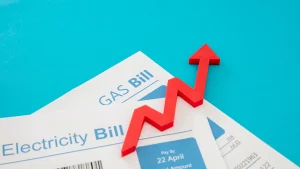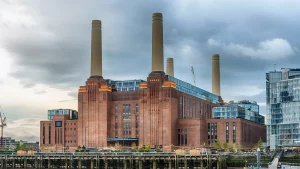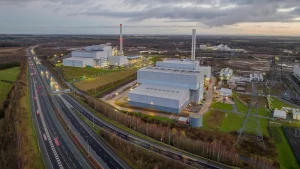What is Commercial Energy?
Commercial energy is the energy used by businesses, organizations, and industries to power their operations. This includes everything from small shops and offices to large factories and manufacturing plants.
Key Differences Between Commercial and Residential Energy
While both commercial and residential energy involve the consumption of electricity and natural gas, there are several key differences between the two:
Consumption Patterns
- Commercial: Business energy consumption is often more consistent throughout the day and night, especially for 24/7 operations like hospitals and data centers.
- Residential: Residential energy consumption typically peaks during specific times, such as early mornings and evenings when people are awake and using appliances.
Energy Needs
- Commercial: Businesses have diverse energy needs, ranging from powering lighting and HVAC systems to running heavy machinery and industrial processes.
- Residential: Residential energy needs are generally more straightforward, focusing on powering household appliances, lighting, and heating or cooling systems.
Energy Contracts and Pricing
- Commercial: Commercial energy contracts are often more complex and tailored to the specific needs of businesses, with options for fixed-rate, variable-rate, or indexed pricing.
- Residential: Residential energy contracts are typically simpler and offer standard pricing plans.
Energy Efficiency
- Commercial: Energy efficiency is a crucial factor for businesses, as it can significantly reduce operating costs. Commercial buildings often implement advanced energy-saving technologies and practices.
- Residential: While energy efficiency is also important for homeowners, the scale of energy consumption and potential savings is generally smaller.
Understanding Your Commercial Energy Needs
To effectively manage your commercial energy consumption, it’s essential to understand your business’s specific energy needs. Consider factors such as:
- Business size and type: The size and nature of your business will influence your energy requirements.
- Energy usage patterns: Analyze your energy consumption to identify peak usage times and opportunities for optimization.
- Energy efficiency goals: Set clear energy efficiency targets and explore ways to reduce your carbon footprint.
By understanding these key differences and factors, you can make informed decisions about your commercial energy usage and implement strategies to optimize your energy consumption and reduce costs.
Commercial vs. Residential Energy: Key Differences
While both commercial and residential energy involve the consumption of electricity and natural gas, there are several key distinctions between the two. Let’s break down the differences:
Consumption Patterns
- Commercial: Businesses often have consistent energy needs throughout the day and night, especially those operating 24/7, such as hospitals and data centers.
- Residential: Home energy use tends to peak during specific times, like early mornings and evenings when people are awake and using appliances.
Energy Needs
- Commercial: Businesses require a diverse range of energy, powering everything from lighting and HVAC systems to heavy machinery and industrial processes.
- Residential: Home energy needs are generally simpler, focusing on powering household appliances, lighting, and heating or cooling systems.
Contracts and Pricing
- Commercial: Commercial energy contracts are typically more complex and tailored to specific business needs. They often offer options like fixed-rate, variable-rate, or indexed pricing.
- Residential: Residential energy contracts are generally simpler and offer standard pricing plans.
Energy Efficiency
- Commercial: Energy efficiency is crucial for businesses to reduce operating costs. Commercial buildings often implement advanced energy-saving technologies and practices.
- Residential: While energy efficiency is important for homeowners, the scale of energy consumption and potential savings is typically smaller.
In essence, commercial energy is tailored to the specific needs of businesses, focusing on efficiency, reliability, and cost-effectiveness. Residential energy, on the other hand, is designed for individual households and prioritizes affordability and convenience.
Why Commercial Energy Matters: Powering UK Businesses
Commercial energy is the lifeblood of businesses in the UK. It’s the energy that keeps the lights on, the machines running, and the economy thriving. Let’s explore why commercial energy is crucial for UK businesses.
Ensuring Business Continuity
A reliable and consistent supply of commercial energy is essential for businesses to operate smoothly. Without it, operations can grind to a halt, leading to significant financial losses and damage to reputation.
Boosting Productivity
Efficient energy use can significantly boost productivity. By optimizing energy consumption, businesses can reduce downtime, increase output, and improve overall performance.
Enhancing Customer Experience
For many businesses, a reliable energy supply is essential for providing excellent customer service. For example, restaurants and hotels rely on energy to maintain comfortable environments and prepare food, while retailers need energy to power their stores and keep products fresh.
Reducing Environmental Impact
Many UK businesses are committed to reducing their carbon footprint. By adopting energy-efficient practices and switching to renewable energy sources, businesses can contribute to a greener future.
Navigating Energy Market Volatility
The UK energy market can be volatile, with prices fluctuating due to various factors. By understanding the market and making informed decisions about energy procurement, businesses can mitigate risks and protect their bottom line.
In conclusion, commercial energy plays a vital role in the success of UK businesses. By prioritizing energy efficiency, exploring renewable energy options, and staying informed about market trends, businesses can ensure a sustainable and prosperous future.





